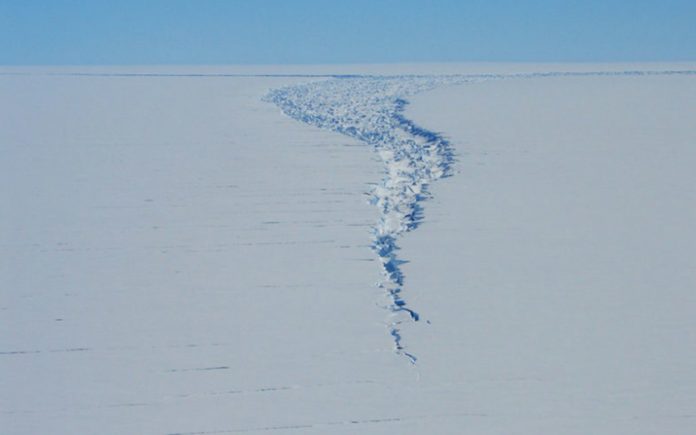In total, 34% of the area of all Antarctic ice shelves, that is, half a million square kilometers, will be on the verge of collapse.
Researchers at the University of Reading in the UK have predicted that at least a third of the area of Antarctic ice shelves could collapse into the sea.
- Does This Mean We Stopped Being Animal and Started Being Human Due to ‘Copy Paste’ Errors?
- The One Lifestyle Choice That Could Reduce Your Heart Disease Risk By More Than 22%
- Aging: This Is What Happens Inside Your Body Right After Exercise
- Immune-Boosting Drink that Mimics Fasting to Reduce Fat – Scientists ‘Were Surprised’ By New Findings
- Gun Violence in America: What They Don’t Talk About at the Debate
Experts reported this to Geophysical Research Letters.
Scientists have modeled the climate in the region and predicted the state of Antarctica after the glaciers melted.
In this century, global warming will provoke an increase in temperature levels by one and a half to two and four degrees Celsius. Thus, the ice shelves, which play the role of the so-called plug for the ice from the coast to the ocean, will begin to melt rapidly. This will lead to imminent disaster.
Every year, ice from the surface of the ice shelf melts, flows into gaps and freezes again.
However, the problem is that a large amount of meltwater can split the glacier, causing it to collapse into the sea.
Among the most “dangerous” glaciers that are prone to melting in the first place are Larsen C, Shackleton, Pine Island, and Wilkins.
- Does This Mean We Stopped Being Animal and Started Being Human Due to ‘Copy Paste’ Errors?
- The One Lifestyle Choice That Could Reduce Your Heart Disease Risk By More Than 22%
- Aging: This Is What Happens Inside Your Body Right After Exercise
- Immune-Boosting Drink that Mimics Fasting to Reduce Fat – Scientists ‘Were Surprised’ By New Findings
- Gun Violence in America: What They Don’t Talk About at the Debate
Recall that Brazilian scientists have recorded a record high temperature in Antarctica. For the first time in the history of the white continent, the air warmed up there to + 18.3 ° C.
